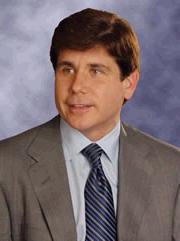
Ann Carey
HUNTINGTON, Ind. (OSV) -- In the latest challenge to the conscience rights of health care professionals, four Walgreens' pharmacists in Illinois were placed on unpaid leave late last month because they refused to dispense the so-called morning-after pill.
The pharmacists, who work in the Metro East area across the state line from St. Louis, join several other Illinois pharmacists who gave up their jobs rather than follow a new state rule requiring pharmacies to provide the "emergency-contraception" pills that can cause abortion.
Francis Manion, an attorney with the American Center for Law and Justice, told Our Sunday Visitor that the Illinois situation is "tragic," because Illinois has one of the strongest conscience-protection laws in the country. However, in April, Illinois Gov. Rod Blagojevich imposed a rule requiring pharmacies to fill prescriptions for the so-called emergency contraceptive, claiming that pharmacists aren't covered by the state conscience law.
Erosion battle
Manion said that in the past two or three years, conscience-related issues have "exploded," mainly because of the morning-after pill, adding that there is a constant battle at both the state and federal levels to erode conscience protection. He explained that conscience laws have been on the books for years to protect people who refuse to participate in a surgical abortion, so conscience cases involving surgical abortion come up only rarely.
The morning-after pill, however, is classified as a contraceptive, and the media often spin the issue inaccurately as a refusal to dispense birth control. The pharmacists being represented by his firm, Manion said, "have been dispensing birth-control pills like they're candy," but they draw the line at the morning-after pill because of its ability to cause an abortion.
"Some of them are quite admirable," Manion said. "They are people who have just given up their jobs. These four Walgreens' pharmacists were told -- it was a [St.] Thomas More thing -- 'Sign here, and you'll be fine; if not, it's off with your head.' And four of them said 'I can't do it,' so they're out of work before Christmas."
Manion said none of the pharmacists' cases involved emergency situations: In every case, other alternatives were readily available to the person seeking the drug. Those alternatives might not be as convenient, he said, but they are not a heavy burden.
"What we say is, 'We regret there will be inconvenience from time to time, but the right to practice your religion without being coerced by the state or an employer supersedes that.'"
Forcing the hand
Americans United for Life, a pro-life law firm headquartered in Chicago, also is representing some of the Illinois pharmacists. Daniel McConchie, director of public relations and public policy for the firm, told Our Sunday Visitor that pro-abortion groups want to expand beyond abortion into other issues that might sell better with the American public.
"One of the things they picked was contraception because so many of the American public, and even [people] in the church, use contraception," McConchie said. "So they thought this would be a good kind of winning situation for them."
This strategy also ties into the "Me Generation," McConchie said. Pro-abortion groups, like Planned Parenthood, are raising money off the idea that "pharmacists should be required to do whatever it is that a person who walks up to the counter wants them to do," he said. And, unfortunately, pharmacists are often treated more like clerks than like the medical professionals they are.
Consequently, some states like New Jersey and California are considering a requirement that pharmacists must dispense any drug regardless of moral opposition to that medication, McConchie said. Other states are considering legislation to allow pharmacists to opt out of dispensing drugs they find morally offensive.
To assist state legislators and policy makers, Americans United for Life has produced "Defending Life 2006," a policy guide and model state legislation that would protect all health care professionals, including pharmacists. Maureen Bailey, an attorney who is a public-policy analyst in the U.S. Conference of Catholic Bishops' Secretariat for Pro-Life Activities, told Our Sunday Visitor that she sees a trend to chip away existing conscience protections -- or, where there are no such protections, to create mandates.
Bailey said that the American College of Obstetricians and Gynecologists delivered a letter to the U.S. Senate in August stating that all doctors should do abortion referrals. NARAL Pro-Choice of Maryland has called for all Maryland hospitals -- including Catholic hospitals -- to be required to provide abortions, she continued.
The American Civil Liberties Union has launched a "Reproductive Freedom Project" aimed at requiring all hospitals to provide what they call the full range of reproductive services, which, of course, include sterilization and abortion. And in some states, attorneys general are getting involved in trying to get hospitals to participate in abortions.
"It is all a part of a larger plan to require abortion," Bailey said. "There's actually a very well-designed strategy on the part of the other side to eliminate the existing protection by following an incremental strategy beginning with contraception, emergency contraception and then abortion."
- - -
- Ann Carey is a senior correspondent for Our Sunday Visitor newspaper, based in Huntington, Inc.

No comments:
Post a Comment